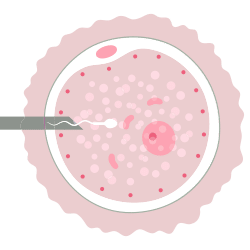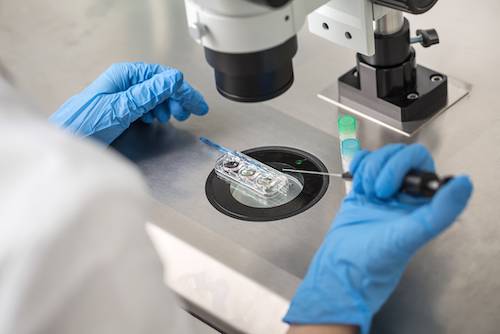Intracytoplasmic Sperm Injection
When there is a problem of low motility, low sperm count, abnormally shaped sperm, or unexplained infertility.

The roles both partners take in the ICSI process are the same as with a basic IVF procedure. The female takes ovarian stimulation medications to produce multiple eggs, and the eggs are then retrieved. The male partner will provide a semen sample from which the healthiest-looking sperm is isolated for ICSI. If no semen sample is available, a sperm retrieval procedure can be performed around the time of egg retrieval. Once the eggs and sperm are collected, the embryologist will inject one sperm into the center of each egg. Several days after fertilization, the healthiest embryo is transferred into the female’s uterine cavity, while extra embryos can be frozen for future frozen embryo transfer (FET) cycles. A blood test is performed approximately two weeks later to determine if the patient is pregnant.






